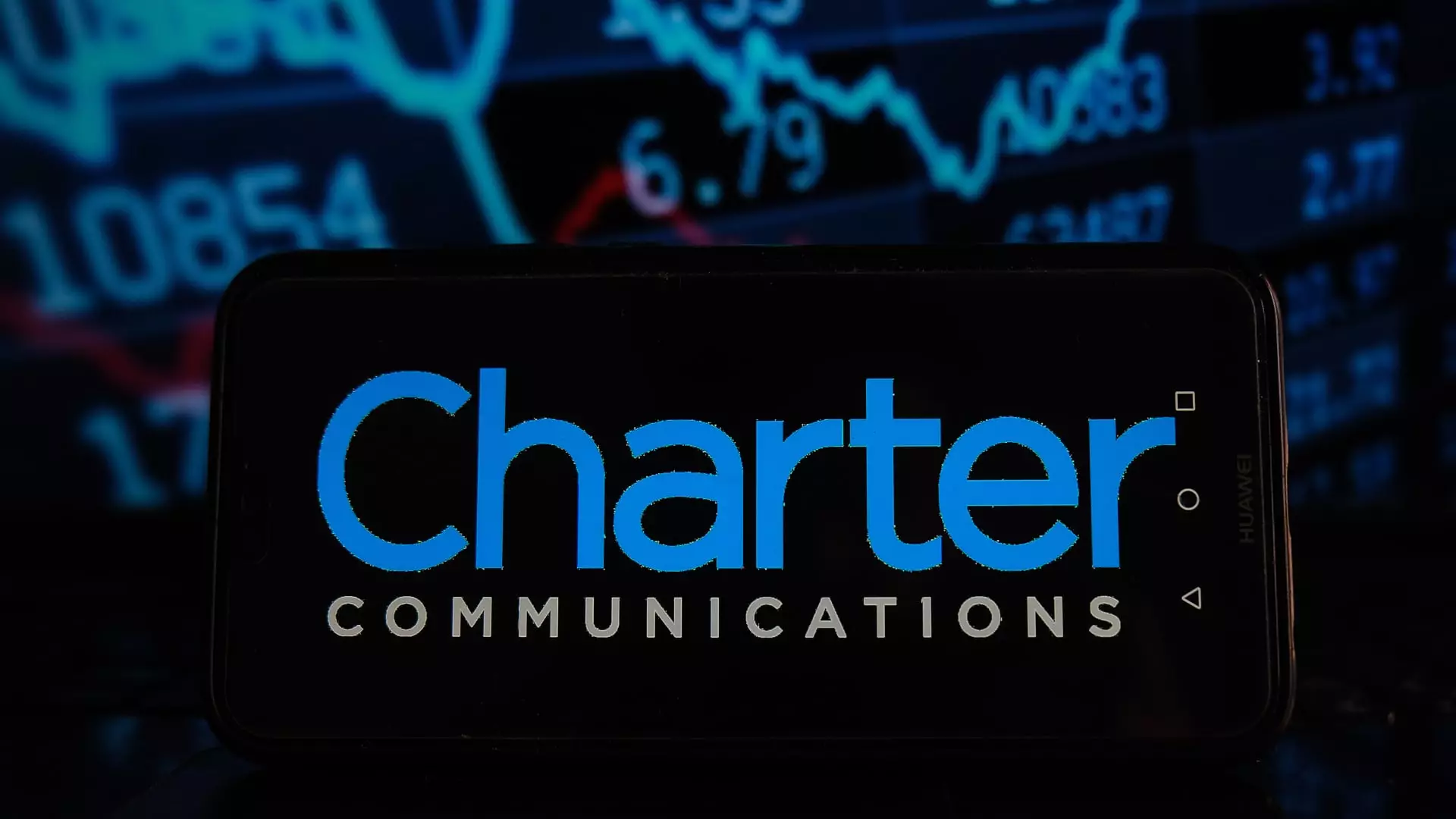In a move that could significantly reshape the landscape of cable and broadband services in the U.S., Charter Communications and Cox Communications have announced a merger valued at a staggering $34.5 billion. While proponents of this merger might praise it as a strategic business advancement aimed at creating synergies, the stark reality is far less rosy. With a growing monolithic presence in an already monopolized market, this partnership raises monumental concerns related to consumer choice, competition, and innovation.
Historically, mergers of this magnitude have led to decreased competition within industries, allowing the newly formed conglomerate to dictate market prices and services. In a digital age where consumer needs are evolving, such a dominant entity could stifle the creativity and competition needed to drive technological advancement forward. By consolidating their assets, Charter and Cox are effectively amalgamating both power and influence, resulting in limited options for consumers who are already struggling to navigate the myriad of choices in the ever-changing telecommunications landscape.
Market Response: Short-Sighted Optimism
Initial market reactions to the merger have indicated a positive outlook, as evidenced by a nearly 8% increase in Charter’s stock price during premarket trading. However, such financial exuberance often fails to account for the broader ramifications of corporate consolidation on the average consumer. Between inflated prices and stunted innovation, the benefits of such a merger become questionable at best. Financial analysts may be quick to extol the potential growth and “efficiencies” that the new entity may experience, yet there is a palpable risk that consumers will bear the brunt of costs associated with this newly formed behemoth.
Cox, a traditional stronghold in the broadband space, may enjoy a temporary boost in revenue as they combine resources with a major player like Charter. However, as evidenced by Charter’s recent loss of 60,000 broadband customers, the market is in a tumultuous state marked by changing consumer preferences. Many are moving away from cable services altogether, gravitating toward alternatives such as 5G networks and other wireless internet options. Hence, these trends raise doubts about the long-term viability of yet another major player drowning out the competition in an already turbulent industry.
The Struggle for Real Choice and Fair Pricing
As mergers like these take place, the question of consumer choice looms large. With Charter poised to absorb Cox, the number of significant competitors in the cable and broadband market diminishes further. In a society where choice and affordability should be prioritized, the merging of two giants serves to reinforce a narrative of exclusivity over equity. This potential monopoly not only brings into question fair pricing but could have long-term negative impacts on service quality. Gone may be the days when consumers could pit providers against one another in search of the best deals.
Customers might soon find themselves at the mercy of standardized services with inflated costs and limited options. Across the U.S., broadband and cable companies are already perceived as lacking transparency in pricing. If this merger goes through, consumers may brace themselves for even more convoluted pricing strategies as the centralized entity aims to maximize profit margins.
Who Benefits? Analyzing Stakeholder Interests
As per the merger agreement, Cox Enterprises will maintain about 23% ownership of the newly formed company. This configuration raises questions regarding the prioritization of shareholder interests over consumer needs. By placing shareholder profit margins at the forefront, there stands a risk that the push for growth and profitability could overwrite genuine concerns for customer satisfaction and service quality. While the executives at the helm may stand to benefit, individuals seeking equitable broadband access and fair pricing may find themselves marginalized.
Moreover, with Charter’s CEO Chris Winfrey remaining at the forefront of the combined corporation, the philosophy guiding this merger may persist unabated. If profits become the primary driver rather than community-focused value, the long-term consequences for average consumers could be devastating. With financial efficiency touted as a goal, the impact on innovation within the sector can effectively be stifled.
As consumers, we must remain vigilant. This merger presents not just a corporate reorganization but a potential threat to our agency and choice in a service landscape that has already seen enough aggressive consolidation. The risk of a monopoly bearing down upon broadband access and customer service is far too significant to ignore, and as such, we must actively advocate for competition and transparency lest we find ourselves trapped in a web of corporate power plays.


Leave a Reply